Raspberry Pi Official Debug Probe, All-In-One USB to Serial Debug and UART Bridge
$28.50
Features:
The Raspberry Pi Debug Probe is an inexpensive, all-in-one USB to serial debug and UART bridge.
It provides the necessary hardware and cabling to support “plug and play” debugging of Raspberry Pi Pico and other microcontroller- and microprocessor-based platforms.
The Raspberry Pi Debug Probe provides both a processor serial debug interface (by default this is the ARM Serial Wire Debug interface) and an industry-standard UART interface. Both interfaces use a 3-pin debug connector, as specified in the
Raspberry Pi 3-pin debug connector specification
.
The Raspberry Pi Debug Probe is provided as a kit, containing the probe hardware in a plastic case, and a set of cables: a USB cable, and three different types of debug cable to cover the vast majority of use cases.
It provides:
– A USB to Serial Wire Debug (SWD) bridge
– A generic USB serial adapter
– Cables to connect to a host computer, and to the debug target
While it has been designed primarily for Raspberry Pi Pico, and other RP2040-based targets, the Debug Probe provides standard CMSIS-DAP debug and UART interfaces over USB; it can therefore be used to debug other targets (that have an SWD port with 3V3 I/O), or simply as a cost-effective USB-to-UART cable.
The Raspberry Pi Debug Probe is based on the Raspberry Pi Pico hardware design and runs the
open-source Raspberry Pi Picoprobe software
. Updating the firmware is accomplished in the same way as on a Raspberry Pi Pico, so it is straightforward to keep the unit up to date with the latest Picoprobe firmware, or to use a custom firmware.
What is a debug probe?
All modern Arm-based microcontrollers, including RP2040, implement Arm’s
CoreSight
debug architecture. Each processor core, like the Cortex-M0+ used in RP2040, provides an Access Port (AP) which can be used to single step, set breakpoints, observe the values of processor registers, and access memory and peripherals via the processor’s bus interface.
The microcontroller itself provides a Debug Port (DP), which is connected externally to pins on the package, and internally to each AP in the system. RP2040 exposes its DP via a low-pin-count Serial Wire Debug (SWD) port: by talking the SWD protocol over this port, a host computer can control each core’s AP, in order to debug a program running on the core.
A debug probe provides a bridge between USB and the SWD protocol. While not strictly required if the host computer is a Raspberry Pi (you can wire up the target’s SWD port directly to the GPIO header on a Raspberry Pi), it’s much more convenient to connect via USB. And if you’re using a PC or Mac, USB is your only option.
The Raspberry Pi Debug Probe exposes the SWD signals on a three-pin JST connector, conforming to the
Raspberry Pi Debug Connector Specification
. We provide adapter cables to connect without soldering to breadboard, and to the debug connector on Raspberry Pi Pico H and WH.
Arm has helpfully standardised the protocol used to communicate over USB between a host computer and a debug probe. The Raspberry Pi Debug Probe conforms to this CMSIS-DAP standard, and so will work out of the box with many existing debug software platforms, including our favourite,
OpenOCD
.
Serial communication
We often want to establish a serial console connection between a microcontroller target and a host computer. This provides a simple way to interact with software running on the target, and to retrieve logging and other diagnostic data. If the host computer is a Raspberry Pi, then you can use one of the UART peripherals exposed via the GPIO header. But if you’re using a PC or Mac, it’s very unlikely that you have access to a built-in serial port.
The Raspberry Pi Debug Probe functions as a USB serial adapter, over the same USB connection as the SWD bridge. It exposes the UART signals on a second three-pin JST connector, again conforming to the Raspberry Pi Debug Connector Specification.
For users who do not require debug functionality, the Raspberry Pi Debug Probe’s low price makes it a cost-effective alternative to other USB serial adapters. It has largely replaced the once-ubiquitous FTDI cable as our adapter of choice here at Pi Towers.
– 3.3V Logic
– Customisable Two-wire serial debugging (ARM Serial Wire Debug supported by default)
– A convenient USB-UART bridge
– Compatible with the CMSIS-DAP standard
– Works with OpenOCD and other tools supporting CMSIS-DAP
– Follows the
Raspberry Pi 3-pin debug connector specification
.
Includes:
– RP2040 based Debug probe board
– Protective case
– USB cable (Power and Data lines)
– 3x Debug cables:
– 3-pin JST SH to 3-Pin JST SH
– 3-pin JST SH to Dupont-style female header
– 3-pin JST SH to Dupont-style male header
Specifications:
Manufacturer
Raspberry Pi
Product No.
SC0889
Manufacturer Part No:
SC0889
Brand:
Raspberry Pi
Product Type:
–
UPC
–
Product Family:
Official
Shipping Weight:
0.05 kg
PB Part No:
SEVRBP0417
Product Model:
–
Warranty:
12 months *
* Warranty period is as stated above unless the manufacturer has chosen to specify a longer period.
All warranties are return to base unless otherwise specified.
Why is there a reasonable price displayed?
Discover the reason behind our incredibly reasonable prices! At our company, we prioritize your satisfaction and work tirelessly to offer you access to top-notch brands without breaking the bank. Our commitment to minimizing profit margins enables us to deliver affordability without compromising on quality. Shop with confidence and explore a wide range of reputable products at budget-friendly rates. Your satisfaction is our priority!
Raspberry Pi Official Debug Probe, All-In-One USB to Serial Debug and UART Bridge
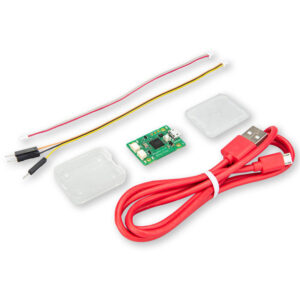
The Raspberry Pi Debug Probe is an inexpensive, all-in-one USB to serial debug and UART bridge. It provides the necessary hardware and cabling to support "plug and play" debugging of Raspberry Pi Pico and other microcontroller- and microprocessor-based platforms. The Raspberry Pi Debug Probe provides both a processor serial debug interface (by default this is the ARM Serial Wire Debug interface) and an industry-standard UART interface. Both interfaces use a 3-pin debug connector, as specified in the Raspberry Pi 3-pin debug connector specification . The Raspberry Pi Debug Probe is provided as a kit, containing the probe hardware in a plastic case, and a set of cables: a USB cable, and three different types of debug cable to cover the vast majority of use cases. It provides: - A USB to Serial Wire Debug (SWD) bridge - A generic USB serial adapter - Cables to connect to a host computer, and to the debug target While it has been designed primarily for Raspberry Pi Pico, and other RP2040-based targets, the Debug Probe provides standard CMSIS-DAP debug and UART interfaces over USB; it can therefore be used to debug other targets (that have an SWD port with 3V3 I/O), or simply as a cost-effective USB-to-UART cable. The Raspberry Pi Debug Probe is based on the Raspberry Pi Pico hardware design and runs the open-source Raspberry Pi Picoprobe software . Updating the firmware is accomplished in the same way as on a Raspberry Pi Pico, so it is straightforward to keep the unit up to date with the latest Picoprobe firmware, or to use a custom firmware. What is a debug probe? All modern Arm-based microcontrollers, including RP2040, implement Arm's CoreSight debug architecture. Each processor core, like the Cortex-M0+ used in RP2040, provides an Access Port (AP) which can be used to single step, set breakpoints, observe the values of processor registers, and access memory and peripherals via the processor's bus interface. The microcontroller itself provides a Debug Port (DP), which is connected externally to pins on the package, and internally to each AP in the system. RP2040 exposes its DP via a low-pin-count Serial Wire Debug (SWD) port: by talking the SWD protocol over this port, a host computer can control each core's AP, in order to debug a program running on the core. A debug probe provides a bridge between USB and the SWD protocol. While not strictly required if the host computer is a Raspberry Pi (you can wire up the target's SWD port directly to the GPIO header on a Raspberry Pi), it's much more convenient to connect via USB. And if you're using a PC or Mac, USB is your only option. The Raspberry Pi Debug Probe exposes the SWD signals on a three-pin JST connector, conforming to the Raspberry Pi Debug Connector Specification . We provide adapter cables to connect without soldering to breadboard, and to the debug connector on Raspberry Pi Pico H and WH. Arm has helpfully standardised the protocol used to communicate over USB between a host computer and a debug probe. The Raspberry Pi Debug Probe conforms to this CMSIS-DAP standard, and so will work out of the box with many existing debug software platforms, including our favourite, OpenOCD . Serial communication We often want to establish a serial console connection between a microcontroller target and a host computer. This provides a simple way to interact with software running on the target, and to retrieve logging and other diagnostic data. If the host computer is a Raspberry Pi, then you can use one of the UART peripherals exposed via the GPIO header. But if you're using a PC or Mac, it's very unlikely that you have access to a built-in serial port. The Raspberry Pi Debug Probe functions as a USB serial adapter, over the same USB connection as the SWD bridge. It exposes the UART signals on a second three-pin JST connector, again conforming to the Raspberry Pi Debug Connector Specification. For users who do not require debug functionality, the Raspberry Pi Debug Probe's low price makes it a cost-effective alternative to other USB serial adapters. It has largely replaced the once-ubiquitous FTDI cable as our adapter of choice here at Pi Towers. - 3.3V Logic - Customisable Two-wire serial debugging (ARM Serial Wire Debug supported by default) - A convenient USB-UART bridge - Compatible with the CMSIS-DAP standard - Works with OpenOCD and other tools supporting CMSIS-DAP - Follows the Raspberry Pi 3-pin debug connector specification . Includes: - RP2040 based Debug probe board - Protective case - USB cable (Power and Data lines) - 3x Debug cables: - 3-pin JST SH to 3-Pin JST SH - 3-pin JST SH to Dupont-style female header - 3-pin JST SH to Dupont-style male header
Product SKU: SC0889
Product Brand: Raspberry Pi
Product Currency: NZD
Price Valid Until: 1970-01-01
Product In-Stock: SoldOut
Additional information
| Brand | |
|---|---|
| Part Number | |
| MPN |
Only logged in customers who have purchased this product may leave a review.

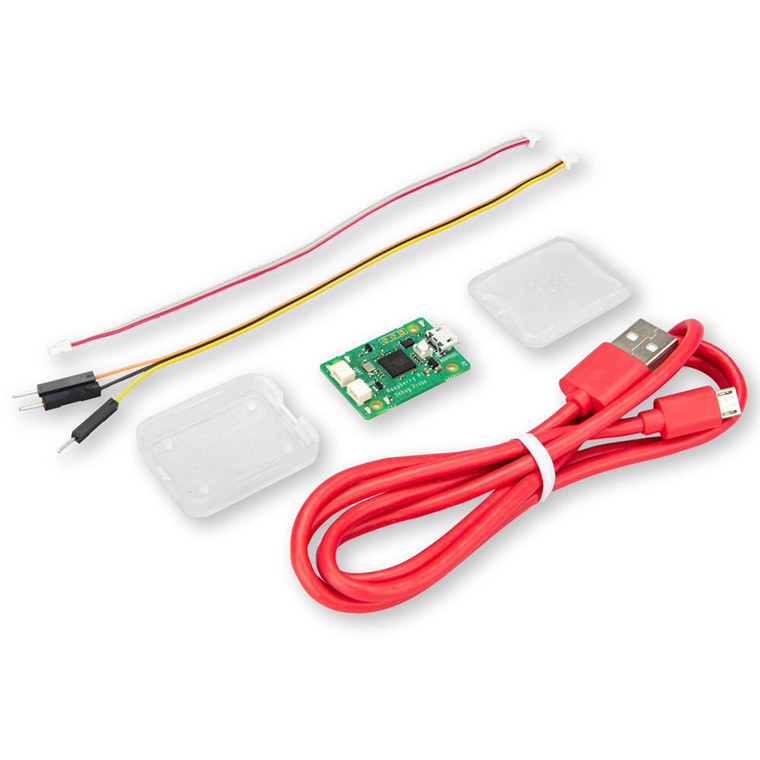
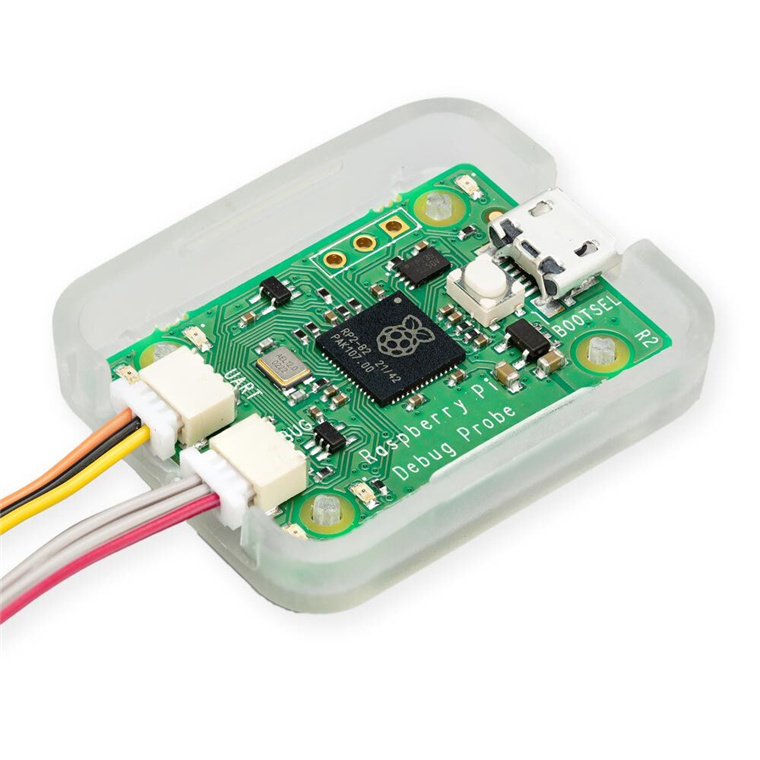
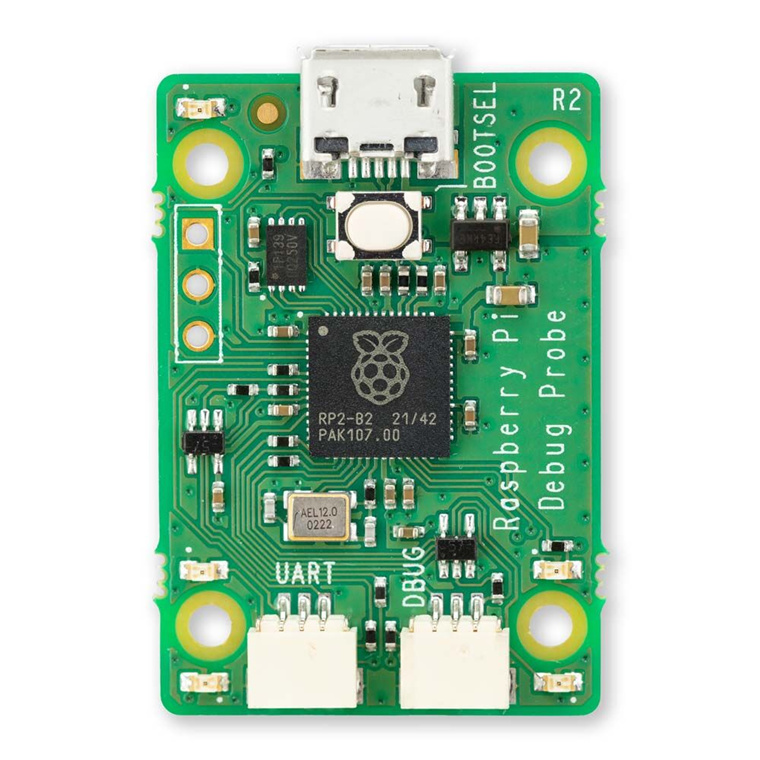
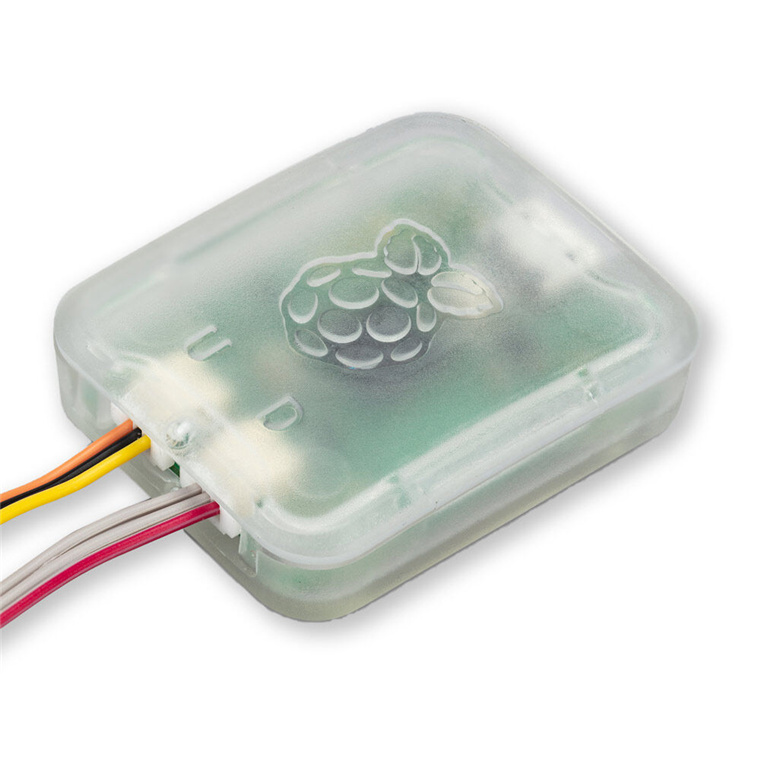
Reviews
There are no reviews yet